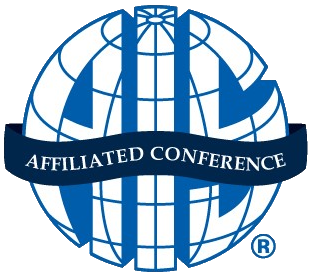Design Science Research Tutorial Workshop
May 26, 09.00 – 17.00 (Fürstenberghaus, Room F3)
Design Science Research is still relatively new in its emphasis and is still evolving in its approach. This tutorial workshop should be highly relevant and suitable for both novice and experienced researchers, who wish to learn more about Design Science Research (DSR), develop and progress their own DSR work, and/or supervise Design Science Research projects. During the workshop, the attendees will be introduced to various DSR concepts and current trends, to create a coherent perspective on DSR and its relationship to other research paradigms. Attendees will also be introduced to three specific and applied techniques for planning and conducting DSR, which were developed by the workshop organisers.
The tutorial will include four 1.5 hour sessions over the course of a full day. The four sessions are titled:
Part 1: Introduction
Part 2: Coloured Cognitive Mapping for DSR Problem Analysis and Solution Identification
Part 3: FEDS – A Framework for Evaluation in DSR
Part 4: RMF4DSR – A Risk Management Framework for DSR
During the workshop sessions, the organisers will present materials and engage the attendees in discussion about important concepts, trends, and techniques.
The first session will introduce the attendees to the DSR research paradigm and to various concepts, issues, and current trends in DSR, in order to create a coherent perspective on DSR and its relationship to other research paradigms. The latter three sessions will each introduce one of three techniques developed by the authors: CCM: Coloured Cognitive Mapping (Venable 2014), FEDS: Framework for Evaluation in Design Science (Venable et al 2012, 2014), and RMF4DSR: Risk Management Framework for Design Science Research (Pries-Heje et al, 2014).
When covering the applied techniques, both to further attendees’ learning and to develop their research, attendees will be invited to apply the techniques to their own ongoing, planned, or potential DSR research projects. The workshop organisers will be on hand to assist participants in planning their research and answering questions about the application of the techniques to the participants’ own research.
Duration
Full day
References
Pries-Heje, Jan, John R. Venable, and Richard L. Baskerville, “RMF4DSR: A Risk Management Framework for Design Science Research”, Scandinavian Journal of Information Systems, Vol. 26, Issue 1 (30 June 2014), Article 3, available at http://aisel.aisnet.org/sjis/vol26/iss1/3.
Venable, John R., “Using Coloured Cognitive Mapping (CCM) for Design Science Research”, Proceedings of the 9th International Conference on Design Science Research in Information Systems and Technology (DESRIST 2014), Monica Chiarini Tremblay, Debra VanderMeer, Marcus Rothenberger, Ashish Gupta, and Victoria Yoon (eds.), Miami, FL, USA, 22-23 May 2014, Springer, Berlin, Germany, pp. 345-359 (nominated for best paper).
Venable, John R., Jan Pries-Heje, and Richard Baskerville, “A Comprehensive Framework for Evaluation in Design Science Research”, Proceedings of the 7th International Conference on Design Science Research in Information Systems and Technology (DESRIST 2012), Ken Peffers and Marcus Rothenberger (eds.), Las Vegas, Nevada, USA, 14-16 May 2012, Springer, Berlin, Germany.
Venable, John R., Jan Pries-Heje, and Richard Baskerville, “FEDS: A Framework for Evaluation in Design Science Research”, European Journal of Information Systems, advance online publication at http://www.palgrave-journals.com/doifinder/10.1057/ejis.2014.36.
Important Deadlines
Registration: 1 May 2015
This deadline will enable the organisers to coordinate with attendees beforehand to help ensure that the participants get the most out of the workshop.
Short Bio of the Organisers
 Richard L. Baskerville is a Board of Advisors Professor of Information Systems and past chairman in the Department of Computer Information Systems, Robinson College of Business, Georgia State University. His research specializes in security of information systems, methods of information systems design and development, and the interaction of information systems and organizations. His interest in methods extends to qualitative research methods. Baskerville is the author of Designing Information Systems Security (J. Wiley) and more than 200 articles in scholarly journals, professional magazines, and edited books. He is Editor-in-Chief for The European Journal of Information Systems and serves on the editorial boards of Business & Information Systems Engineering (Wirtschaftsinformatik), and the Information Systems Journal. A Chartered Engineer, Baskerville holds degrees from the University of Maryland (B.S. summa cum laude, Management), and the London School of Economics, University of London (M.Sc., Analysis, Design and Management of Information Systems, Ph.D., Systems Analysis).
Richard L. Baskerville is a Board of Advisors Professor of Information Systems and past chairman in the Department of Computer Information Systems, Robinson College of Business, Georgia State University. His research specializes in security of information systems, methods of information systems design and development, and the interaction of information systems and organizations. His interest in methods extends to qualitative research methods. Baskerville is the author of Designing Information Systems Security (J. Wiley) and more than 200 articles in scholarly journals, professional magazines, and edited books. He is Editor-in-Chief for The European Journal of Information Systems and serves on the editorial boards of Business & Information Systems Engineering (Wirtschaftsinformatik), and the Information Systems Journal. A Chartered Engineer, Baskerville holds degrees from the University of Maryland (B.S. summa cum laude, Management), and the London School of Economics, University of London (M.Sc., Analysis, Design and Management of Information Systems, Ph.D., Systems Analysis).
 Jan Pries-Heje is Professor of Information Systems at Roskilde University. He is also head of a research group on user-driven innovation and head of studies for the master’s program in project management and process improvement. He serves as Chair to IFIP Technical Committee 8 on Information Systems. His research focuses on designing and building innovative solutions to managerial and organizational IT problems. He has published more than 200 scholarly books and papers. He is senior editor for Journal of the AIS, specialising in design science research.
Jan Pries-Heje is Professor of Information Systems at Roskilde University. He is also head of a research group on user-driven innovation and head of studies for the master’s program in project management and process improvement. He serves as Chair to IFIP Technical Committee 8 on Information Systems. His research focuses on designing and building innovative solutions to managerial and organizational IT problems. He has published more than 200 scholarly books and papers. He is senior editor for Journal of the AIS, specialising in design science research.
http://rucforsk.ruc.dk/site/person/janph
 John Venable is Associate Professor and Director of Research at the School of Information Systems and Co-Director of the Curtin Business School Not-for-Profit Research Initiative, both at Curtin University, Perth, Western Australia. He has held academic positions in Information Systems and Computer Science in the USA, Denmark, New Zealand, and Australia. He has published in journals including European Journal of Information Systems, Journal of Information Technology, The Information Systems Journal, Information & Management, Scandinavian Journal of Information Systems, Information Technology & People, Communications of the Association for Information Systems, Journal of Community Informatics, Wirtschaftsinformatik, and the Electronic Journal of Business Research Methods. Dr Venable has published over 50 refereed papers about or using Design Science Research (DSR), is the incoming section editor for DSR of the Australasian Journal of Information Systems, co-organised the 2010 IFIP Working Groups 8.2 and 8.6 Joint International Working Conference on “Human Benefit through the Diffusion of Information Systems Design Science Research”, and co-edited a special issue of Information Technology and People on “Design and Diffusion of Systems for Human Benefit”.
John Venable is Associate Professor and Director of Research at the School of Information Systems and Co-Director of the Curtin Business School Not-for-Profit Research Initiative, both at Curtin University, Perth, Western Australia. He has held academic positions in Information Systems and Computer Science in the USA, Denmark, New Zealand, and Australia. He has published in journals including European Journal of Information Systems, Journal of Information Technology, The Information Systems Journal, Information & Management, Scandinavian Journal of Information Systems, Information Technology & People, Communications of the Association for Information Systems, Journal of Community Informatics, Wirtschaftsinformatik, and the Electronic Journal of Business Research Methods. Dr Venable has published over 50 refereed papers about or using Design Science Research (DSR), is the incoming section editor for DSR of the Australasian Journal of Information Systems, co-organised the 2010 IFIP Working Groups 8.2 and 8.6 Joint International Working Conference on “Human Benefit through the Diffusion of Information Systems Design Science Research”, and co-edited a special issue of Information Technology and People on “Design and Diffusion of Systems for Human Benefit”.
http://business.curtin.edu.au/contact/staff_directory/?profile=John-Venable
Please address questions about the workshop to John Venable at j.venable@curtin.edu.au.


